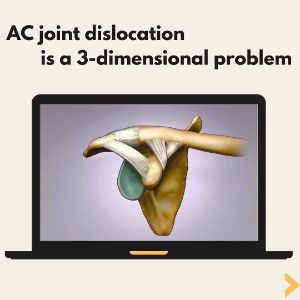Accidents can leave lasting physical scars, and one area often affected is the shoulder. Many people wonder if experiencing an accident makes them more susceptible to developing shoulder arthritis later in life. Dr. Steven Struhl explores this concern in detail, looking at the relationship between shoulder injuries and the risk of arthritis development.
Understanding Shoulder Arthritis
Shoulder arthritis primarily refers to the degeneration of cartilage in the shoulder joint. This condition can cause pain, stiffness and reduced mobility. The most common types of arthritis affecting the shoulder are osteoarthritis, rheumatoid arthritis and post-traumatic arthritis.
- Osteoarthritis usually develops gradually due to wear and tear on the joint over time.
- Rheumatoid arthritis is an autoimmune condition that can affect multiple joints, including the shoulders.
- Post-traumatic arthritis is a specific type of osteoarthritis that develops after an injury to the joint, often leading those who have experienced shoulder trauma to have concerns about their long-term joint health.
The Connection Between Accidents and Arthritis
A 2016 article in the RMD Open rheumatic and musculoskeletal journal collated different studies showing that joint injuries substantially increase the risk of OA, which further increases with the patient’s age at the time of injury and with time from the onset of injury. These studies reported that 20% to more than 50% of patients who had had joint trauma develop OA and represent approximately 12% of all OA cases.
Here are some key points to consider:
- Type of Injury Matters: Severe injuries, such as fractures or dislocations of the shoulder, can significantly increase the risk of developing post-traumatic arthritis. The trauma can lead to cartilage damage, inflammation and changes in joint mechanics.
- Inflammation Response: After an accident, the body’s inflammatory response can affect the shoulder joint. Chronic inflammation can weaken cartilage and result in accelerated joint wear, eventually leading to arthritis.
- Age and Other Risk Factors: Age plays a crucial role; older individuals may be at a higher risk for developing arthritis regardless of whether they’ve had a previous accident. Other risk factors include genetic predisposition, obesity, previous joint injuries and lifestyle factors.
- Delayed Effects: Post-traumatic arthritis may not appear immediately after an injury. Symptoms can take years to develop, leading many to unknowingly associate their arthritis with aging instead of a past incident.
NYC Shoulder Arthritis Treatment
Steven Struhl MD – AC Joint Separation in New York offers premier treatment for shoulder arthritis, including post-traumatic arthritis that develops after an injury. We diagnose arthritis with a medical history, physical exam and X-rays of the affected shoulder. Computed tomography (CT) scans and magnetic resonance imaging (MRI) scans are also performed to diagnose arthritis. Dr. Struhl can then recommend appropriate treatment to relieve pain and restore mobility.
If you have concerns about your shoulder, especially after an injury, reach out to Steven Struhl MD – AC Joint Separation in NYC. We can provide tailored advice and treatment options.
Posted on behalf of Steven Struhl MD





